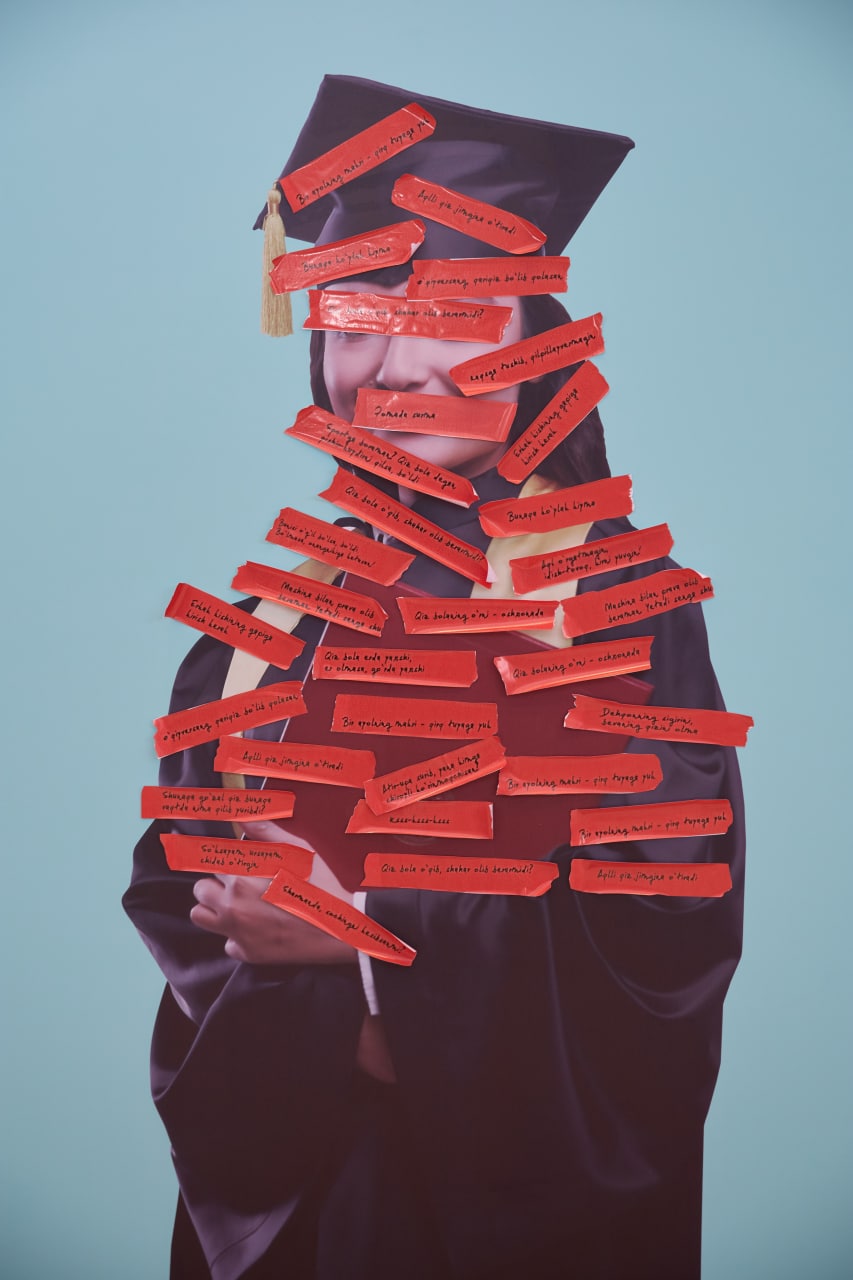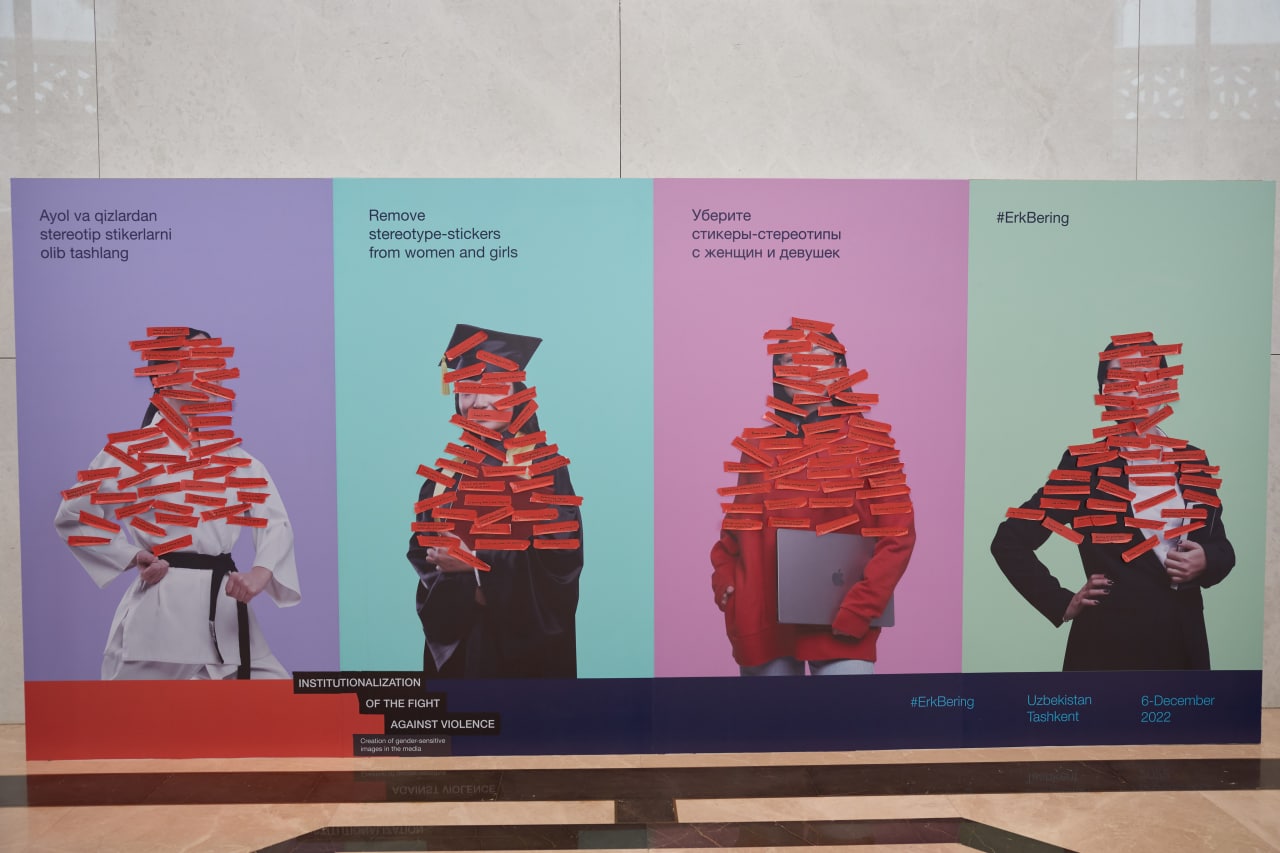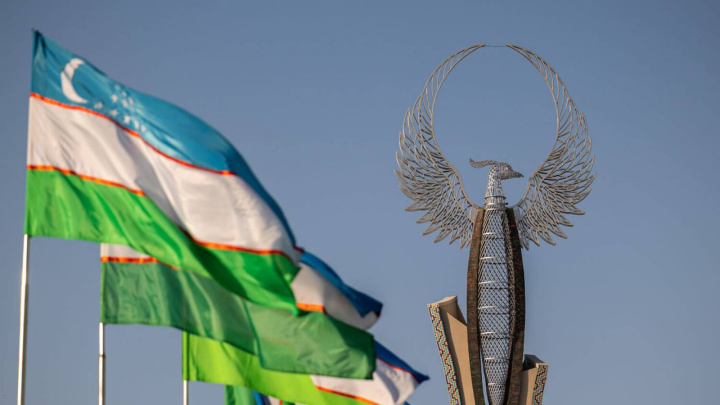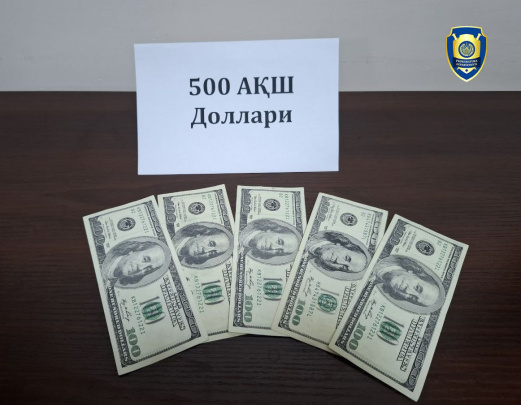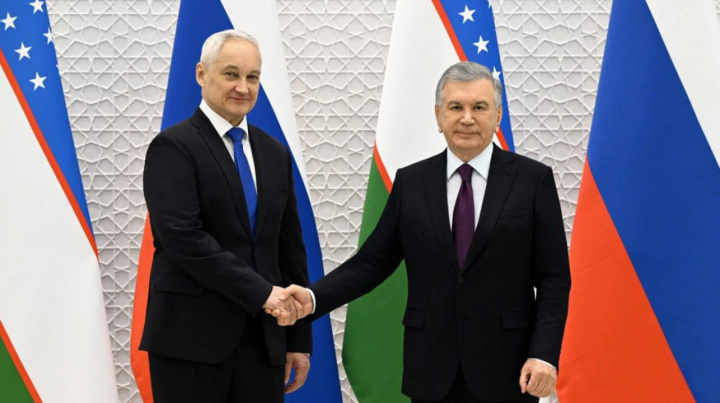The conference was held on the initiative of the Head of the Communications and Information Policy Sector of the Executive Office of the Presidential Administration, Saida Mirziyoyeva. It was organized by the Public Foundation for the Support and Development of National Mass Media with the support of the UN Population Fund Uzbekistan (UNFPA). The event was attended by the Director-General of the United Nations in Geneva, Tatiana Valovaya.
Before entering the hall, everyone became a witness and participant in a project dedicated to women who have experienced violence and our future – girls who want to change this world, breaking through the wall of misunderstanding and old prejudices.
The idea of the project belonged to the designer, Creative Director of the Tashkent company Novda, Ahmad Sobitov. The idea was based on the visualization of audio tracks with recordings of the victims of violence screaming for help: “Help!”, “Don’t touch!”, “Hear me!”, “I can’t live in this torment!” and others. Each such track was stylized under popular traditional patterns (atlas, adras, ikat and others). According to Mr. Ahmad, the recordings themselves were used from hundreds of real videos available online or sent in by the victims themselves asking for help.

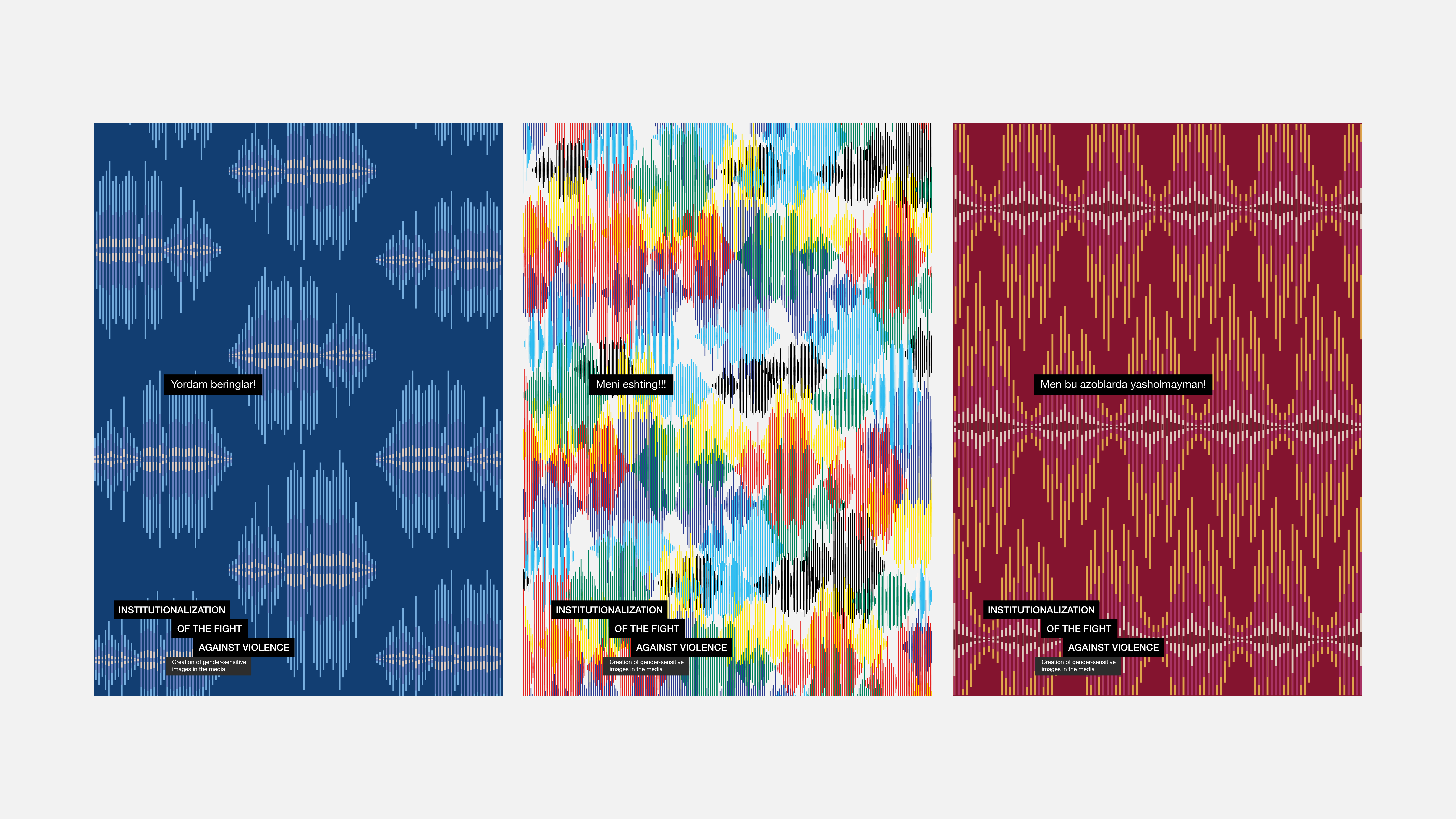
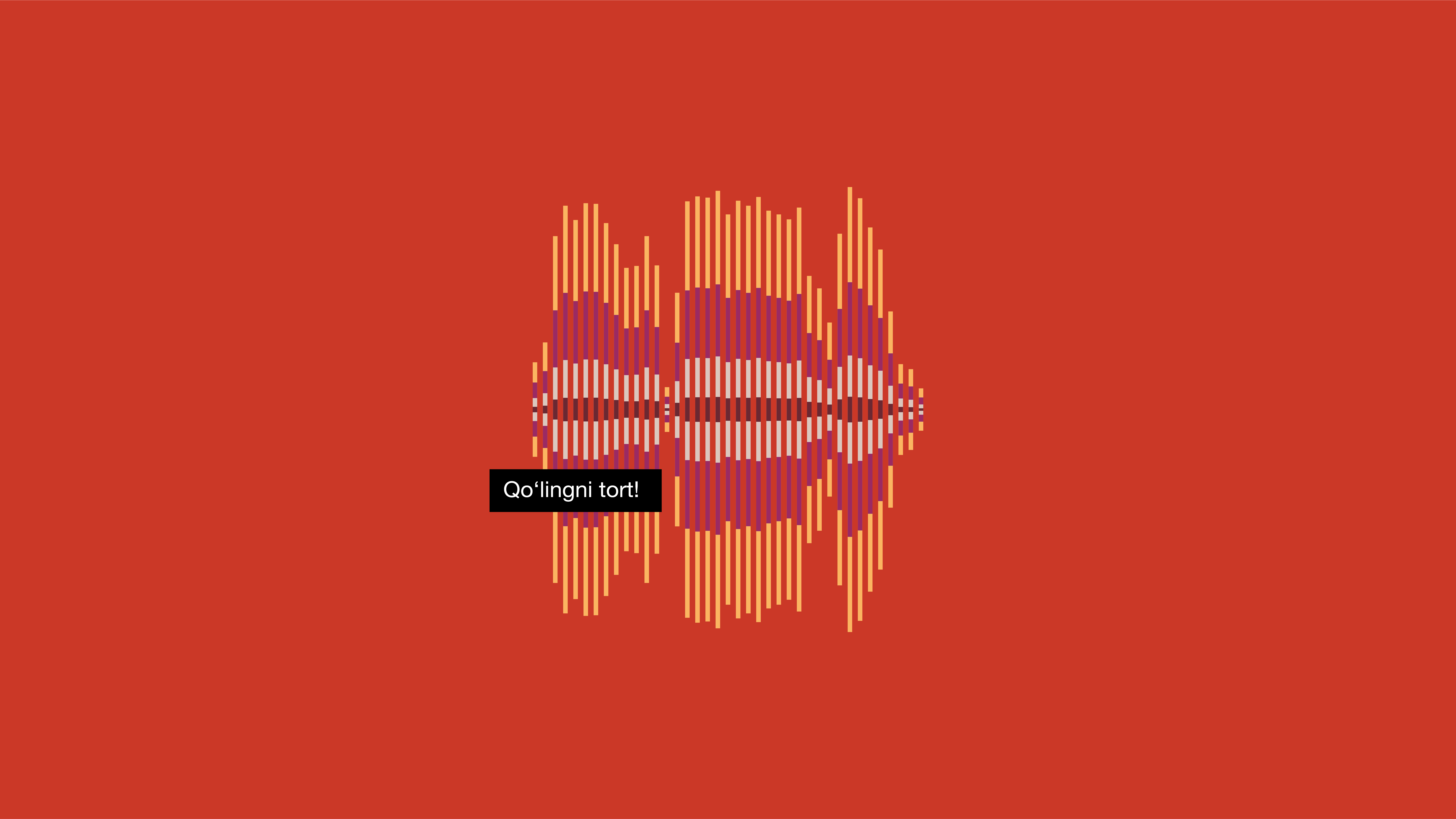
The lobby of the conference hall presented photographs of girls, completely pasted over with stickers, on which common prejudices and humiliations were written, to which women are often subjected. For example, phrases such as “Let it be a son. If not, then you will return to your parents”, “If you study, you will remain old and lonely”, “Why does a girl need sports? It is enough to be able to wash dishes” or “A girl’s place is in the kitchen”.
The conference participants had to rip off these stickers with gender prejudice written on them, thus symbolizing the liberation of girls from stereotypes and labels that have been stuck to them for centuries in Central Asian countries.
The creative project of Ahmad Sobitov aroused great interest among the participants of the international forum and the Tashkent creative community. But most importantly, he urged to think about justice, respect for women, and the potential that lies in them and which should not be curbed in any way.


